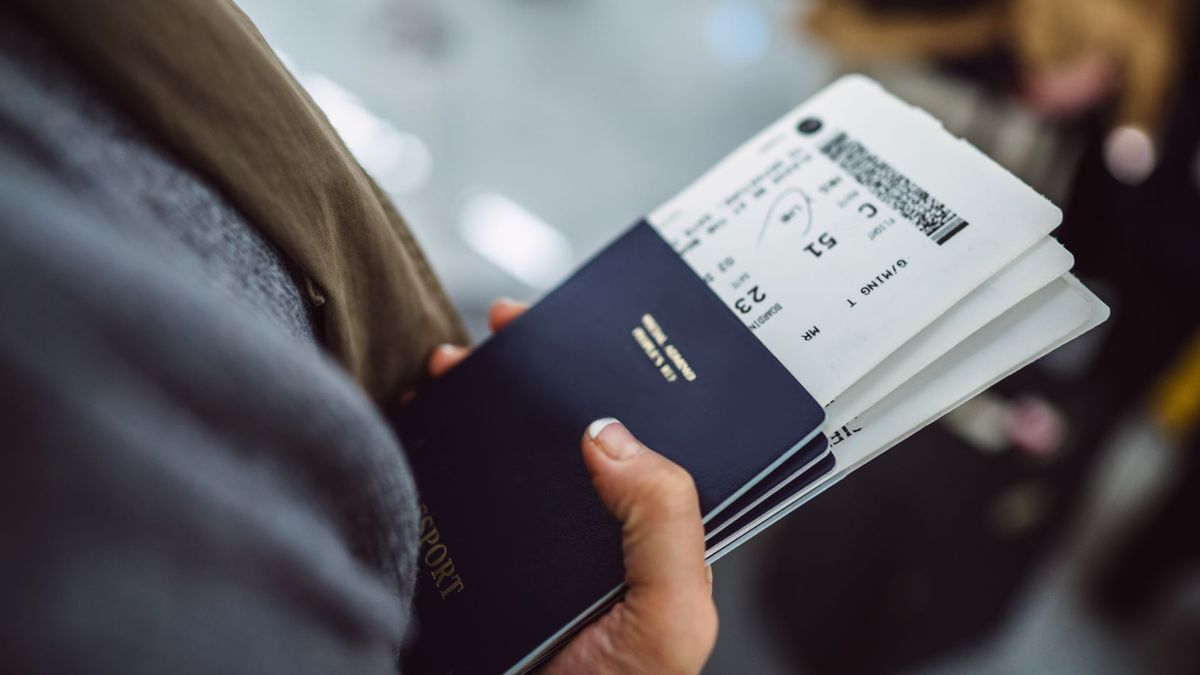For more than a decade, Apple could do almost no wrong. The iPhone made it the world’s most valuable company. The App Store helped launch businesses such as Uber and Airbnb. And the company’s new products made it a player in health, Hollywood and finance.
Now, the difficulties are piling up. The Justice Department filed an antitrust lawsuit against Apple on Thursday for giving its own products advantages that it deprived rivals of having. The suit is the latest in a series of actions brought against the company by regulators on three continents.
The troubles are testing the resiliency of Apple’s brand and undermining its business dominance, even though Apple’s products remain popular and continue to power an extremely profitable business. The company reported $97 billion in profit last year on $386 billion in sales.
Here’s a look at the challenges ahead.
U.S. v. Apple
The Justice Department filed a sweeping antitrust lawsuit against Apple on Thursday that takes direct aim at the company’s most important business: the iPhone. The government argued in an 88-page lawsuit that Apple broke antitrust laws by preventing other companies from offering applications that compete with Apple products, like its digital wallet.
The suit follows a yearslong investigation into Apple that focused on the ways that the company has controlled the user experience on iPhones and other devices to create what critics call an uneven playing field. It has granted its own products and services access to core features like its NFC chip and notification system that it denies rivals like PayPal and Garmin smartwatches.
It could be months before the case goes to trial.
European Regulators v. Apple
On March 4, the European Commission fined Apple 1.8 billion euros ($1.95 billion) for thwarting competition by preventing music streaming rivals from offering users promotions and subscription upgrades. Because Apple is the sole gatekeeper controlling developers’ access to iPhone customers, European regulators said that it wrote the rules for the App Store in ways that allowed Apple Music to offer benefits that it denied rivals like Spotify.
“From now on, Apple will have to allow music streaming developers to communicate freely with their own users,” said Margrethe Vestager, the European Commission executive vice president who oversees competition policy. The size of the fine, she added, “reflects both Apple’s financial power and the harm that Apple’s conduct inflicted on millions of European users.”
Since the fine was issued, Apple has delayed a request by Spotify to inform users of offers on its website, Spotify said. The European Commission has said that Apple could face additional fines if it fails to comply with orders.
South Korea and the Netherlands v. Apple
Apple is facing fines from regulators in the Netherlands and South Korea, as well.
In 2021, Dutch regulators ruled that Apple violated competition laws in the dating app market by preventing services such as Tinder from using payment systems other than the one Apple provides. Rather than allow other payment systems to collect that money, Apple reduced its commission to 27 percent on the price paid per user, from its usual rate of 30 percent. But Dutch regulators said that move didn’t comply with the law and last year fined Apple €50 million ($53 million).
A similar situation is playing out in South Korea, where lawmakers were among the first in the world to respond to developer complaints about App Store commissions by passing legislation to force Apple to allow alternative payment systems. Apple relaxed its requirement to 26 percent. The country’s telecommunications regulator said it might fine Apple $15.4 million for “unfair practices.”
Apple said that it disagreed with the findings of Dutch and South Korean regulators. It is appealing the Dutch fine and awaiting the results of a South Korean investigation.
Japan, Australia and Britain v. Apple
Several other countries are exploring legislation or regulation that could force Apple to loosen its grip, including Japan, Australia and Britain. The regulatory changes they are discussing could require Apple to offer alternative payment options and reduce its commissions. Having watched how Apple has complied with similar laws elsewhere, the lawmakers could choose to be more prescriptive in their rule making.
The rules would be the latest to fracture what was once a single App Store into a jumble of digital shops across national borders.
China v. Apple
Last fall, China began telling employees of government agencies not to use iPhones for work. The authorities made no public pronouncements beyond pointing out that there were “media reports” about security flaws in iPhones. But the directive has rippled through the country’s smartphone market.
Sales of iPhones in China fell 24 percent in the first six weeks of the year, according to Counterpoint Research, which tracks the smartphone industry. At the same time sales of Huawei, once China’s largest smartphone maker, surged 64 percent behind the introduction of a new phone with 5G wireless capabilities.
Epic v. Apple
Apple largely triumphed over Epic Games, the maker of Fortnite, after the video game company sued Apple in 2020 over the App Store. But a federal judge struck a serious blow against Apple’s control of the App Store, ruling that it violated California’s competition laws by preventing app makers from providing alternative ways to pay for services.
After the Supreme Court decided not to take up the case, Apple said that it would comply with the ruling just as it has complied in the Netherlands: by cutting its commission to 27 percent for developers who use alternative payment options.
Last week, Epic filed a motion in court challenging Apple’s compliance, saying that the new fees and rules subvert the judge’s order. Meta and Microsoft have filed a brief in support of Epic, setting the table for the court to have to rule again on whether Apple is violating California law.
Developers v. Apple
Before European regulators began enforcing a new competition law to give customers more choice this month, app makers were complaining that Apple’s response to the law defied the rules. The company was supposed to open the iPhone to alternative app stores and payment systems, but it added those capabilities alongside new commissions and requirements.
On Monday, developers met with Apple in Europe and questioned how the fees complied with the law, which has several “free of charge” provisions. Apple has insisted that its policies are consistent with the new rules.
European regulators could open a formal investigation into Apple’s plans. The process could set up a lengthy legal battle that could force Apple to change or risk fines up to 10 percent of its global annual revenue, which was nearly $400 billion last year.
Wall Street v. Apple
Apple’s investors are clamoring for it to jump into the world of generative artificial intelligence. The technology, which can answer questions, create images and write code, has been heralded for its potential to create trillions of dollars in economic value.
But at a time when peers such as Microsoft and Google are beginning to build generative A.I. businesses, Apple has yet to introduce a product. Tim Cook, Apple’s chief executive, has assured investors that something is coming later this year. The company has held talks with Google about adding its A.I. model called Gemini to iPhones.
Investors have sent shares of Apple down more than 3.75 percent this year. At the same time, the Nasdaq Composite Index, which is chock-full of tech stocks, has risen nearly 11 percent.





